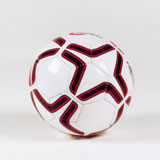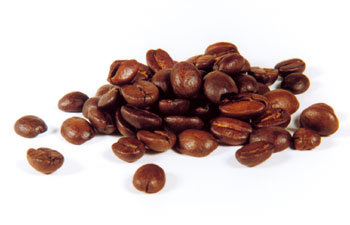Leisure
Sports
There are both non-profit and commercial sports organisations for most types of sports in most cities, towns and regions in Germany. The sports association ("Sportbund") can provide information on the sports played in your area. It also often offers cheaper fitness activities for employees to use after work. Private "fitness studios" and "sport studios" also offer their members a wide-range of activities. Members pay a monthly fee and can then use any of the equipment in the studios, take part in courses and use all the facilities such as the sauna.

Football is Germany’s national sport and was once described by a football commentator as the "only real and vibrant national culture". Germany won their first World Cup in Switzerland in 1954. It was celebrated across the country as the "miracle of Bern". Germany’s premier league, the "Bundesliga", was formed in 1963. Millions of Germans follow the fortunes of the top 18 teams for nine months of the year. The highlights of the season are the championship title celebrations and the often tearful relegations to the second division. In 40 years of "Bundesliga" football, Bayern Munich has lifted the title 16 times. The German champion in 2004 was SV Werder Bremen.
Cultural Activities
Both public and private institutions offer a wide range of cultural activities in Germany. Nearly all theatres, opera houses, museums and libraries in Germany are state subsidised. This means that tax money is given to these institutions and ticket prices are often low. Daily newspapers often print a section on cultural events in the respective region. In larger cities there are special magazines that list current events.
Libraries

Public libraries in Germany are called the "Stadtbibliothek", "Städtische Leihbücherei", or "Staatsbibliothek". These libraries have a large selection of German literature, professional journals, newspapers and magazines. Many libraries also have a foreign language selection. Libraries often have a selection of videotapes, music CD’s and learning programmes for computers. Books, videotapes and CD’s can be borrowed free of charge once you have a yearly membership card. A fee must be paid to receive this library card and a valid identification card or passport is needed. Books are borrowed for a fixed loan period ("Ausleihfrist"). You should not exceed this time limit as you have to pay a fine if the borrowed items are not brought back in time.
Cinema
New films normally come out on Thursdays in Germany. This is the day the new cinema programme is issued. Which films are shown where is listed in the corresponding section of the local daily newspapers. Many cinemas have certain days of the week where the entrance fee is heavily reduced in comparison with the rest of the week. In some cities there is also a so-called "Communal Cinema" or a "Programme Cinema". These mostly screen low-budget, independent films, often in the original language with German subtitles.
Video Stores
Most video stores ("Videotheken") are privately run businesses. Films of all types can be rented out for a fee. Just like on German television, most of the films are dubbed into German. A valid identification card is needed to become a member.
Cafés

Traditional cafés that are often part of a confectionery shop often serve Germany’s famous coffee and cakes. Coffee powder is placed in a filter and percolated and then served in cups or coffee pots. Most cafés and restaurants also serve cappuccino, espresso and café au lait ("Milchkaffee"). In the larger cities there are also numerous Turkish and Arabic cafés.
Pubs
Pubs serve a wide selection of drinks and normally have at least a small selection of food or snacks. People meet with friends in pubs and spend the evening together, drinking beer and chatting.
Restaurants

An old German word for a restaurant is "Gaststätte". If the restaurant has a sign reading "gut bürgerlich" or "Hausmannskost", this means it serves traditional German fare. Turkish, Greek, Italian, Indian and Thai restaurants can now also be found throughout Germany.

Although service is included in the price in Germany, it is also normal to give a tip. The size of the tip depends on the friendliness, quality and service. 10 per cent of the total bill is considered to be sufficient. If you want a copy of the bill, ask the service staff for the "Rechnung".
Friends and Colleagues
It is common practice in Germany to meet with friends and family at the weekends (for instance to have coffee and cakes), or to meet in the evenings in a bar or restaurant. If you start a new job you can invite your new colleagues to what is called an "Einstand". This is a party held normally at work after the working day is over ("nach Feierabend"). The best thing to do is ask the colleagues what is the normal procedure at your new place of work. Many people also invite their colleagues to have a drink on their birthday.
Stammtisch – regulars’ table
The "Stammtisch" is when groups of friends or acquaintances meet on a regular basis in a bar or restaurant. Public invitations from organisations (such as political parties or trade unions) to events on a specific date to discuss political issues are called "Politischer Stammtisch" (political regulars’ table).
